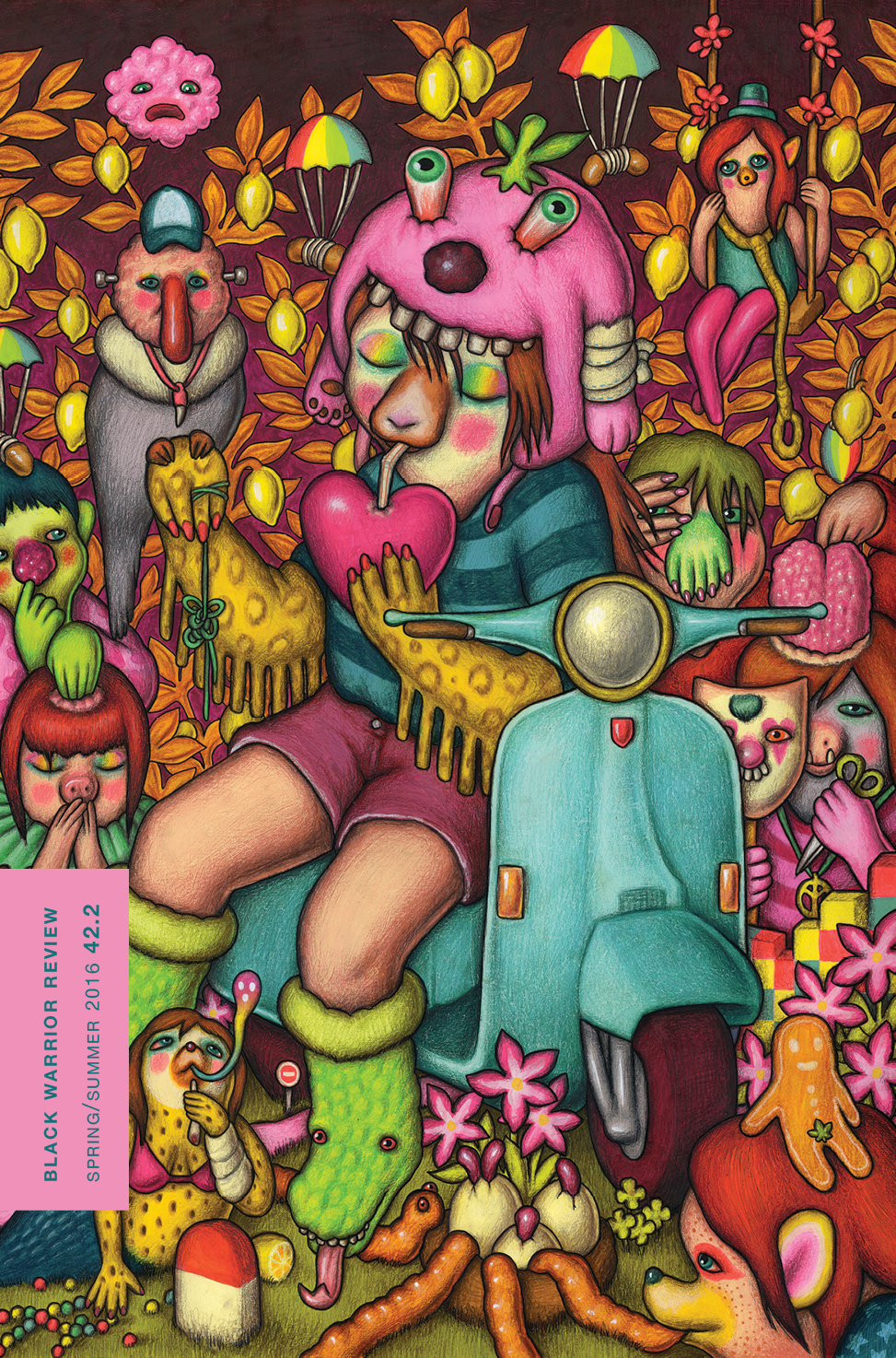2015 Contest: An Interview with Fiction Winner Jill Rosenberg

Jill Rosenberg has a BA from Vassar College and an MFA in fiction from the University of Montana. Her stories have appeared in The Kenyon Review Online, Crazyhorse, The North American Review, and other journals. She was the winner of the 2005 River City Fiction Contest and the 2013 Crazyhorse Fiction Contest.
Interview by JOE LUCIDO
Black Warrior Review: Your contest-winning story “The Twins” plays out the relationship of a mother’s struggle with caring for her newborn twins, one of whom is thin with blue eyes, the other of whom is fat with dark eyes and dark skin. How did this idea come to you?
Jill Rosenberg: The idea initially came to me when I saw a collection of stuffed animals shoved into a small cabinet. For some reason it seemed sad and inappropriate to shove them in there that way, and I started to imagine someone pushing her babies into a cabinet. I thought, what if someone put away her baby the way you put away a toy when you no longer want to play with it?
But I’d also been thinking a lot about parenting in general. Lately it’s really struck me how much kids resemble their parents, not just the way they look but the concerns that they have, the things that they like and don’t like, etc. I guess I starting thinking about how scary that must be, to have that much influence over a developing person, to really see yourself in your child, but also to ultimately have so little control over who she becomes. (Maybe because I’m not a parent, I’m able to think about this in a way that is too scary for someone who actually is a parent.) That question that the woman in my story asks about other women and how they manage to have babies and let them grow into whatever they want to grow into—that’s something I really wonder about. I know parents say that it’s really hard to have kids, but I think it sounds like the hardest, scariest thing a person can do. And it worries me that, despite that, almost everyone does it. I guess I was interested in giving voice to some of those fears and running with them.
BWR: This story has several surreal and memorable moments. In one scene, the mother finds the skinny baby has consumed the fat baby. Do you find yourself often gravitating toward the surreal in your work? If so, what role does the surreal play in your writing?
JR: I think my imagination gravitates toward the surreal, but I couldn’t figure out how to use that in my writing until I wrote this story. In general, I think of the surreal as within the realm of metaphor—it’s just a different kind of metaphor. It should allow you to say something about emotions or experience that you can’t say by simply writing realistically. A surreal moment might describe more accurately what the real world feels like. Although I love allowing my imagination to go in that direction, I somehow feel at this point that I tend to tell stories realistically unless for some reason a realistic story won’t allow me to convey what I’m trying to convey.
BWR: I was struck by the mother seeing elements of herself in each baby. She sees her own face in the fat baby’s face, an emptiness in the skinny baby’s face. Much of this story, the mother’s outward struggles with her babies are reflected in her own inner struggles with herself. These struggles often manifest in violent thoughts and actions from the mother. Why did you decide to not shy away from some of the more gruesome images in this story?
JR: I’ve always thought that denying or ignoring gruesome or dark thoughts is scarier than admitting to them. I used to think that everyone had really dark thoughts and just pretended they didn’t. Now I’m not sure about that—I’ve come to realize not everyone thinks the way I do. I’ve always felt compelled to force myself to acknowledge and keep thinking about my worst thoughts, maybe because, otherwise, they feel even more threatening. In a way, that’s what the women in my story is struggling with—she would probably be much better off if she could accept the thoughts and fears she’s having about her babies, but she lets the thoughts take over and that’s what leads her to do some terrible things.
With writing I think it’s important to illuminate whatever is most compelling and informative about the experience you’re describing. In many cases, for me, I find this involves shining a light on things that, in life, we might want to turn away from.
BWR: What are you reading right now? Some of your biggest influences?
JR: Right now I’m reading The Brief Wondrous Life of Oscar Wao, by Junot Diaz and Ben Loory’s short story collection, Stories for Nighttime and Some for the Day. In terms of influences, the first writers who come to mind first are Mary Gaitskill, Etgar Keret, Rebecca Curtis, Miranda July, and Chris Adrain.
BWR: What can we expect from you in the future?
JR: I’m writing more short stories, but I’m also working on a novel. I have a group of short stories that are pretty much finished that I would love to publish as a book.